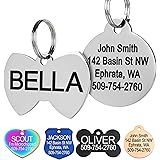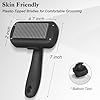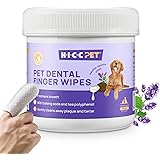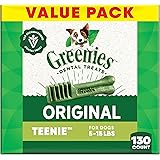Choosing the right pet insurance can be overwhelming for pet parents. With so many options available, it’s important to carefully consider your pet’s specific needs and your budget to find the best pet insurance plan for you. ASPCA® Pet Health Insurance is a popular choice, but is it really the best? Let’s delve into the details to help you make an informed decision.
Understanding Pet Health Insurance
What is Pet Health Insurance?
Pet health insurance is a type of insurance coverage designed to help pet parents manage the costs of veterinary care for their furry companions. Similar to human health insurance, a pet insurance plan can assist in covering expenses related to accidents, illnesses, surgeries, and even certain preventive care treatments. The level of coverage will depend on the specific pet insurance plan you select from the insurance company.
Importance of Pet Insurance for Pet Parents
The importance of pet insurance for pet parents cannot be overstated. Unexpected veterinary bills can quickly become a significant financial burden. With the right insurance coverage, pet parents can focus on their pet’s well-being without constantly worrying about the cost of treatment. Many pet insurance companies offer reimbursement options to help with these costs. Pet insurance can be a lifeline when emergencies arise, allowing you to provide the best possible care for your beloved pet.
How ASPCA® Pet Health Insurance Fits In
ASPCA® Pet Health Insurance is one of the many options available in the competitive pet insurance market. As an insurance agency, ASPCA® Pet Health Insurance aims to provide comprehensive pet health insurance coverage to pet parents, offering various plans with different deductible options, annual limits, and reimbursement rates.
Note that ASPCA receives a royalty fee for allowing United States Fire Insurance Company to use their brand, and that insurance products are underwritten by this company. Their coverage options include coverage for accidents, illnesses, and hereditary conditions, with additional coverage for routine care and behavioral issues available through some plans, making it a comprehensive pet insurance policy.
Overview of ASPCA® Pet Health Insurance Program
Key Features of ASPCA Pet Insurance
The ASPCA® Pet Health Insurance Program offers a range of key features designed to provide comprehensive pet insurance coverage for pet parents. One notable aspect is the customizable annual deductible, allowing pet parents to adjust their plan to fit their budget. With various plans to choose from, the ASPCA pet insurance program aims to offer comprehensive preventative care and coverage, including options for alternative therapies.
They also provide coverage options for hereditary conditions and behavioral issues, offering peace of mind when facing unexpected veterinary expenses. It is important to remember that insurance products are underwritten by the United States Fire Insurance Company.
Types of Coverage Offered
ASPCA pet health insurance covers a multitude of veterinary needs through several coverage options. Complete coverage generally includes accidents, illnesses, and injuries, while some plans offer additional coverage for routine care, preventive care, and even exam fees. ASPCA® pet health insurance covers hereditary conditions, congenital conditions, and certain behavioral issues, providing pet parents with diverse options tailored to their pet’s needs. Understanding the different coverage types is crucial for selecting the best plan that meets the unique needs of your furry companion. With a range of options, ASPCA aims to provide broad coverage.
How to Customize Your Insurance Plan
Customizing your plan with the ASPCA® Pet Health Insurance program involves several key decisions that impact the level of reimbursement you receive. Pet parents can select their annual deductible, annual limit, and reimbursement rate to create a plan that aligns with their budget and pet’s health requirements.
Lower deductibles typically result in higher monthly premiums, but mean less out-of-pocket expense when veterinary care is needed. By adjusting these elements, pet parents can tailor the plan to suit their financial circumstances and ensure their pet receives comprehensive pet care coverage.
Comparing ASPCA® Pet Health Insurance with Other Insurers
What Makes ASPCA Pet Insurance Unique?
ASPCA pet insurance stands out from other companies due to its comprehensive coverage options. Unlike some insurers, ASPCA® pet health insurance covers hereditary conditions and behavioral issues, offering pet parents a more complete plan. Additionally, the ability to get a free quote allows pet owners to compare plans and find the best fit for their budget.
Customizing the annual deductible, annual limit, and reimbursement rate provides flexibility, allowing pet parents to create a plan that best suits their financial situation and pet care needs., allowing pet parents to tailor their coverage to their specific needs and budget. This level of personalization, combined with broad coverage, sets ASPCA pet insurance apart in the business of insurance and helps pet owners make informed choices.
Evaluating the Best Pet Insurance Options
Evaluating the best pet insurance involves comparing different factors to find the most suitable coverage for your pet. Consider the annual deductible, annual limit, and reimbursement rate offered by various companies. Also, examine the extent of coverage, including whether the plan covers accidents, illnesses, hereditary conditions, and preventive care.
Check the waiting period before coverage begins, and read customer reviews to assess the insurer’s reputation. Comparing ASPCA pet health insurance with other providers is essential for making an informed decision.
Pros and Cons of ASPCA Pet Health Insurance
ASPCA® Pet Health Insurance has several advantages. The customizable annual deductible, annual limit, and reimbursement rate allow pet parents to tailor their coverage to their budget. Complete coverage is available for accidents, illnesses, and hereditary conditions, and some plans even offer routine and preventative care.
However, the disadvantages include the fact that ASPCA receives a royalty fee for allowing United States Fire Insurance Company to use their brand, and insurance products are underwritten by this company. Also, pre-existing conditions are generally not covered, and the waiting period might be a consideration for some pet parents.
Understanding the Terms of the ASPCA Pet Health Insurance Program
Waiting Periods and Their Implications
Understanding the waiting period is crucial when enrolling in any pet insurance policy, including the ASPCA® Pet Health Insurance Program. The waiting period is the time you must wait after purchasing coverage before the plan begins to cover eligible veterinary expenses. For ASPCA pet insurance, the waiting period may vary based on the specific condition or treatment. Understanding these implications is important for new coverage, ensuring that pet parents are prepared for any potential healthcare needs during this time, and helping to secure reimbursement.
Insurance Quotes: What to Expect
When seeking a quote from ASPCA® Pet Health Insurance, pet parents can expect a personalized estimate based on several factors, including the pet’s breed, age, and location. The quote will typically outline the premium amount, annual deductible, annual limit, and reimbursement rate for the chosen plan.
ASPCA receives a royalty fee from United States Fire Insurance Company, who underwrites these policies. Pet parents should carefully review the quote to understand the coverage details and exclusions. The business of insurance relies on accurate quoting for effective consumer choice and financial planning, which is crucial when selecting an insurance provider.
Routine Care and Preventative Services
ASPCA® Pet Health Insurance covers routine care and preventative services through optional add-on plans that can be included with their coverage, helping to minimize additional costs. These plans may cover expenses like annual wellness exams, vaccinations, dental cleanings, and preventative treatments for fleas, ticks, and heartworms. While complete coverage focuses on accidents and illnesses, preventative care coverage helps pet parents maintain their pet’s health. Understanding the specific routine care and preventative services covered under the plan is essential for utilizing these benefits effectively.
ASPCA® and the Business of Insurance
ASPCA® is Not an Insurer: What This Means
It’s important to understand that ASPCA® is not an insurer but an insurance agency. This means that while ASPCA® Pet Health Insurance provides the platform and brand, the actual products are underwritten by the United States Fire Insurance Company. ASPCA receives a royalty fee for allowing United States Fire Insurance Company to use their brand, and that means ASPCA itself does not assume the financial risk associated with paying out claims. It’s an important distinction, because pet parents can properly understand the structure of their coverage.
How ASPCA® Supports the Prevention of Cruelty to Animals
While ASPCA® Pet Health Insurance directly deals with providing coverage for veterinary care, the ASPCA® as an organization supports the prevention of cruelty to animals through various initiatives. The ASPCA® works to rescue animals from abuse, advocate for animal-friendly legislation, and provide resources and education to pet parents. Although the ASPCA receives a royalty fee from an insurance company, the ASPCA’s broader mission extends to improving the lives of animals. This commitment aligns with the values of responsible pet ownership promoted by the ASPCA pet health insurance.
The Role of ASPCA® in Promoting Responsible Pet Ownership
ASPCA® plays a significant role in promoting responsible pet ownership by offering pet health insurance as a tool for managing the cost of veterinary care. By encouraging pet parents to obtain coverage, ASPCA® helps ensure that more pets receive the necessary medical attention when they need it. ASPCA’s association with the pet insurance program reinforces the importance of planning for a pet’s healthcare needs and being prepared for unexpected expenses, especially when considering additional costs for spaying or neutering. Responsible pet ownership includes making informed decisions about pet health insurance and providing the best possible care for your furry companions.
How to File an ASPCA Pet Insurance Claim
Filing an ASPCA Pet Insurance claim is a straightforward process designed to ensure pet parents receive reimbursement for eligible veterinary expenses efficiently. Firstly, ensure that your pet receives treatment from a licensed veterinarian, as this is essential for utilizing your pet insurance policy effectively. Once you’ve paid the veterinary bill, gather all relevant documents, including the itemized invoice and any medical records related to the visit. Next, download the claim form from the ASPCA® Pet Health Insurance website or request one from their customer service department. Fill out the claim form accurately, providing all necessary details about the treatment, diagnosis, and costs incurred. Submit the completed form along with the supporting documentation to the insurance company via mail or online, following the provided instructions. Understanding the terms of your plan, including any waiting period or deductible requirements, is crucial for a smooth claim process. Once the claim is received, the insurance company will review it, and if approved, reimbursement will be issued based on your coverage and chosen reimbursement rate. In case of any questions or concerns, contacting the ASPCA® Pet Health Insurance customer service can provide valuable assistance. This process enables pet parents to manage the financial burden of veterinary care, ensuring their pets receive the best possible treatment while using ASPCA Pet Health Insurance.
Get a free pet insurance quote today.
Securing a free pet insurance quote is a crucial step in evaluating the best options available for your furry friend. Obtaining a quote from ASPCA® Pet Health Insurance is a simple process that allows pet parents to understand the potential costs and coverage associated with different plans. To begin, visit the ASPCA® Pet Health Insurance website or contact their insurance agency directly. You’ll be asked to provide information about your pet, including their breed, age, and location. This information helps the insurance company assess the risk and tailor the quote to your pet’s specific needs. The quote will typically include details about the monthly premium, annual deductible, annual limit, and reimbursement rate offered by the plan. It’s essential to review the quote carefully to understand the coverage details, including what veterinary expenses are covered and any applicable waiting periods or exclusions. Comparing multiple quotes from various companies, including ASPCA® Pet Health Insurance, can help pet parents make an informed decision and find the best coverage that aligns with their budget and pet’s healthcare requirements.
Pets Best Pet Insurance Overview
Pets Best Pet Insurance is a well-regarded insurer in the business of insurance, offering a range of options to pet parents. Their plans typically cover accidents, illnesses, and injuries, with options for adding preventive care coverage for routine wellness exams, vaccinations, and dental cleanings. Pets Best is known for its straightforward claim process, allowing pet parents to easily submit claims online or via mail and receive reimbursement for eligible veterinary expenses. The company offers customizable coverage, allowing pet parents to choose their annual deductible, annual limit, and reimbursement rate to create a plan that fits their budget. Pets Best also provides coverage for hereditary conditions and congenital conditions, providing peace of mind for pet parents concerned about their pet’s genetic predispositions. In comparing coverage, many pet parents find Pets Best a very helpful insurance agency. There are many companies to choose from, but Pets Best is an insurer with coverage options for accidents, illnesses, injuries, and with additional coverage for routine care. As with all plans, it is important to review the specific terms and conditions of the Pets Best policy, including any waiting period or exclusions for pre-existing conditions, to ensure that it aligns with your pet’s health needs and your financial considerations.




























































